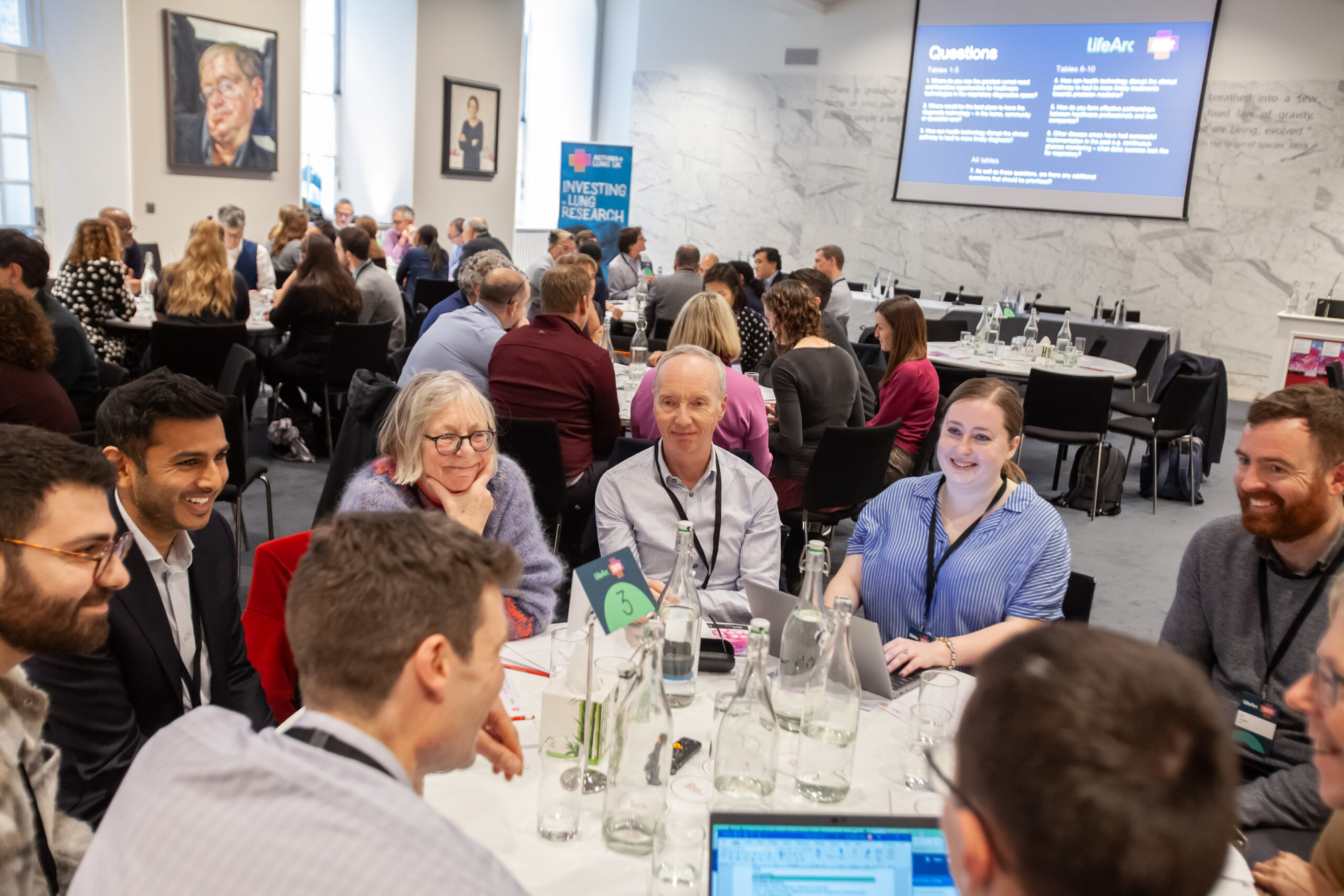Bronchiectasis (BE) is a chronic lung condition that significantly impacts the lives of many people in the UK and around the world. BE cases are rising, but it remains under-diagnosed and poorly understood, with limited treatment options.
To address the needs of people with BE, we need support and investment from key players in the industry to help accelerate the development of new treatments and diagnostics. We’re working with Asthma + Lung UK to progress research and raise awareness of the opportunities in BE.
What is bronchiectasis?
BE is characterised by permanent damage and widening of the bronchi, the large airways in the lungs. This damage leads to the accumulation of mucus, causing repeated lung infections and further lung damage. In the UK, BE affects approximately 1 in 200 adults, equating to around 200,000 people – this makes it the third most common lung condition in the country.
BE can often be mistakenly considered a mild condition. However, this disease can lead to significant health issues, frequent hospitalisations, and a significant reduction in patients’ quality of life. The need for ongoing medical care also has a big economic impact on the NHS.
The need for effective treatments and diagnostics
The number of people affected by BE is rising in the UK and globally. While more common in older adults, younger people and children are increasingly diagnosed with this condition. This can lead to a life-time of health issues.
Despite the increase in prevalence, there are no approved effective or targeted therapies, leaving patients reliant on off-label medications like antibiotics, bronchodilators, and mucolytics, which are primarily designed for other respiratory conditions and may not be effective. In severe cases, lung transplants may be the only option.
Effective diagnostics are another major unmet need in BE. Diagnosing the condition is challenging as symptoms overlap with other lung diseases like asthma, emphysema, and chronic obstructive pulmonary disease (COPD). This often leads to misdiagnosis or delayed diagnosis, exacerbating the condition and increasing the burden on patients and healthcare systems. Currently, a CT scan is the only definitive diagnostic tool, but it is costly and resource-intensive.
Opportunities in BE research
BE is often overlooked but there are significant unrealised commercial and research opportunities. There is a big gap in the market for new BE drugs as there are no treatments currently licensed. And, with a growing number of cases worldwide, investing in BE research and development could provide large financial returns.
Companies with expertise in chronic lung disease, infection and inflammation, especially those experienced in cystic fibrosis research, can significantly impact this field as the underlying mechanisms of BE have similarities with other lung diseases. This means there is an opportunity to repurpose existing products, cutting down time and money taken to develop new innovations from scratch, improving treatment effectiveness and reducing adverse effects.
There is also an urgent need to develop faster, cheaper, and more accurate diagnostics which would reduce reliance on expensive CT scans and speed up diagnosis, helping people get quicker access to treatment. We also need better tests for managing infections and exacerbations to help improve treatment decisions and, ultimately, patient outcomes.
We can support your bronchiectasis projects
BE is one of LifeArc’s key disease focuses as part of its Chronic Respiratory Infection Translational Challenge. We partner with academic institutions, research organisations and charities to progress promising new diagnostics and treatments that can improve the quality of life for those living with BE.
We provide essential support to partners working in BE through funding, therapeutic and diagnostic development expertise and crucial access to patient insights. For example, through our partnership with Asthma + Lung UK, we are working on building engagement from people living with the condition to give patients a voice. This helps inform the development of new innovations and identify key areas of unmet need that need addressing.
One area we have identified is that patients need more control of managing their condition to reduce the chances of them ending up in hospital.
With this in mind, we are funding Project Breathe, a research initiative that aims to explore how a home monitoring app can predict severe infections in people with chronic lung conditions like BE. The app is designed to work as a warning system, letting people know if an infection is developing so that they can seek advice or treatment before their health deteriorates.
We are also working with partners to create a clinical trial platform to allow better access conduct trials for repurposed or new therapeutics.
These are just a couple of examples of our work in BE. We are always looking for new projects to collaborate on, particularly in the repurposing or diagnostics space. If you have ideas that can have an impact in BE and your work is at a stage to translate to impact on the treatment or diagnosis of BE, get in touch!
Find out more about our work in BE and how we can support you.
About the author

Steven Tait
Senior Business Manager for Chronic Respiratory Infection



